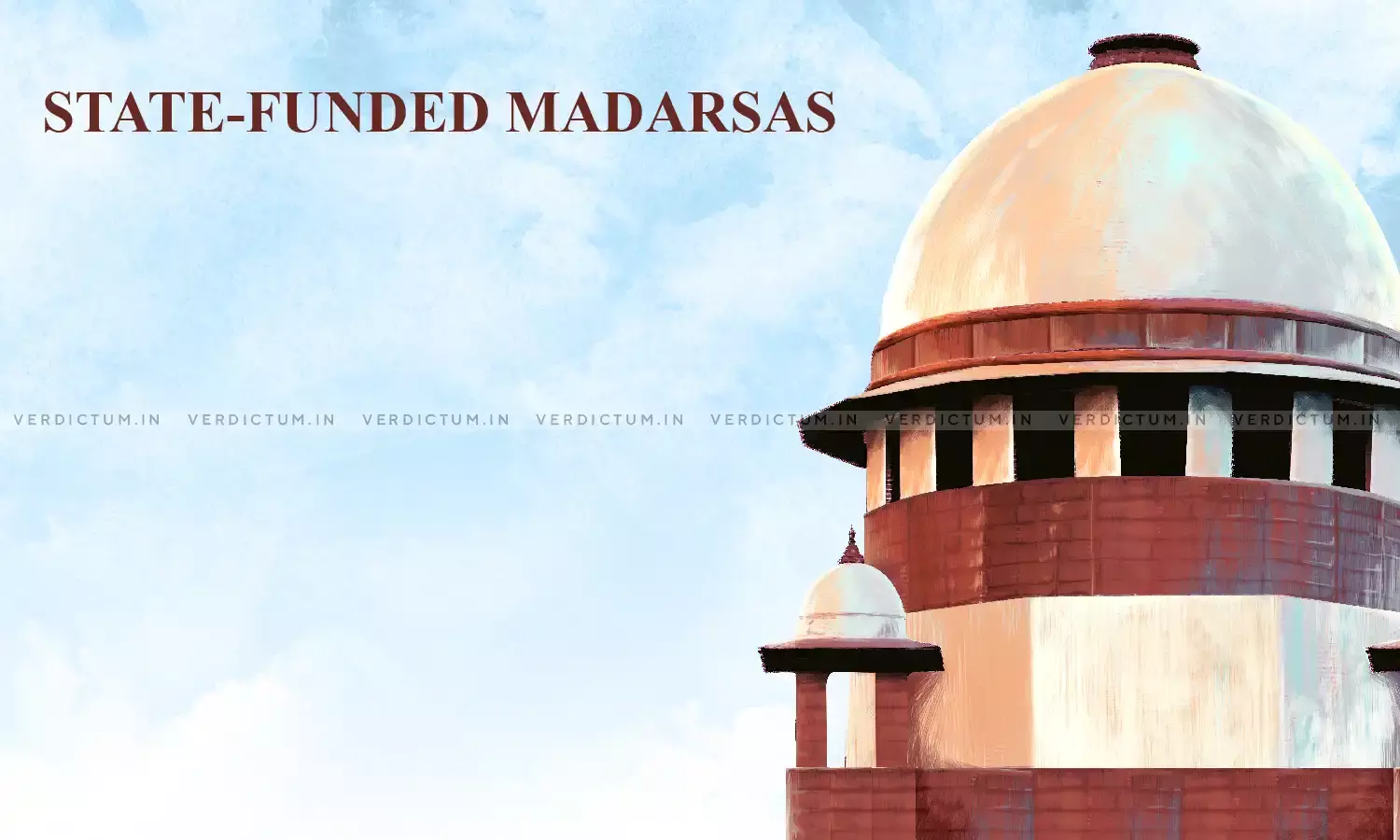Plea In Supreme Court Challenging Conversion Of State-Funded Madarsas In Assam To General Schools

A Special Leave Petition has been filed in the Supreme Court challenging the order of the Guwahati High Court which upheld a repealing statute of the Assam Government by which religious instructions, which were so far being imparted in the "provincialised Madrasas" of the State, have come to an end and such Madrasas were converted to general schools.
The SLP has been filed by Md. Imad Uddin Barbhuiya and 12 others. The Assam Repealing Act, 2020 was passed which repealed the Assam Madrassa Education (Provincialisation) Act,1995 and the Assam Madrassa Education (Provincialisation of Services of Teachers and Reorganisation of Educational Institutions) Act, 2018. The Petitioners had challenged the said Act as well as some executive orders issued thereunder. The Writ Petition was dismissed in February, this year.
The Counsel for Petitioner Adeel Ahmed has filed the petition stating that, "The Hon'ble High Court has erroneously observed that the Petitioner Madrassas being government schools, and wholly maintained by the State through provincialization are hit by Article 28(1) of the Constitution of India and as such, cannot be permitted to impart religious instruction."
The petition states that, "The Assam Madrassa Education (Provincialization) Act, 1995 (repealed by the Act of 2020) is only limited to the State undertaking to pay the salaries and provide consequential benefits to the teaching and non-teaching staff employed in madrassas as also the administration, management and control of these madrassa. The land and building belong to the madrassas are taken care by the Petitioners and the expenditures on electricity and furniture are borne by the Petitioner madrassas themselves. The repealing Act of 2020 takes away property coupled with statutory recognition of Madrassa education and the impugned order dated 12.02.2021 issued by the Governor disbands the 'Assam State Madrasa Board' created in 1954. It amounts to an arbitrary exercise of both legislative and executive powers and amounts to a denial of the Petitioner Madrassas' ability to continue as madrassas providing religious instruction coupled with religious education."
The petition submits that, "such an encroachment into the proprietary rights of the Petitioner Madrassas without payment of adequate compensation is a direct infraction of Article 30(1A) of the Constitution of India. The operation of the impugned judgment would result in the discontinuation of the Petitioner Madrassas as Madrassas and would prevent them from admitting students for the old courses for this academic year."
The petitioners raise the following questions of law:
1. "Whether the Notification in question dated 12.02.2021 infringes the Petitioner Madrassas rights under ARTICLE 28(1) of the Constitution of India since the Assam Madrassa Education (Provincialization) Act, 1995 (repealed by the Act of 2020) is only limited to the State undertaking to pay the salaries and provide consequential benefits to the teaching and non-teaching staff employed in madrassas as also the administration, management and control of these madrassas, and that the land and building belong to the madrassas are taken care by the Petitioners and the expenditures on electricity and furniture are borne by the Petitioner madrassas themselves ?
2. Whether the Respondents by way of the Notification in question dated 12.02.2021 have abrogated the right of the Petitioner Madrassas under Article 30(1) to 'establish' and 'administer' educational institutions of their choice inclusive of the right to decide their own curriculum which may also be based on their perception of ways to preserve their religion or culture?"
The petitioners have prayed before the Court to "Grant ad-interim ex-parte stay on the operation of the Impugned Judgment dated 04.02.2022 passed by the Hon'ble High Court of Gauhati"

